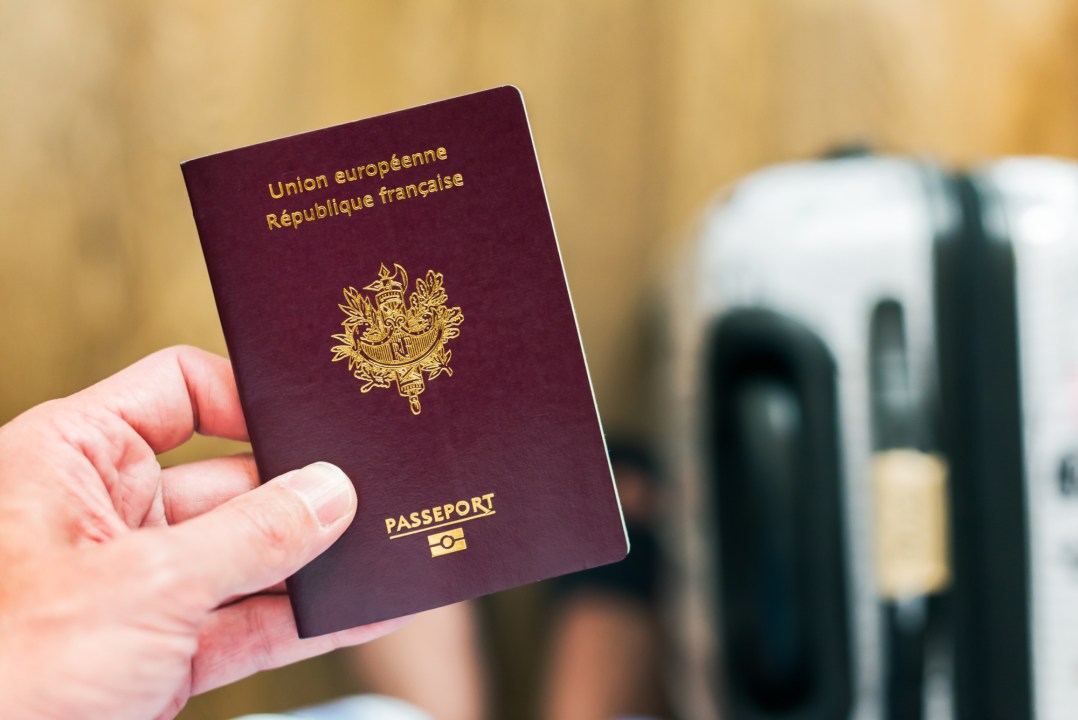Bruno Retailleau, the hardline French Minister of the Interior, has issued a confidential circular to regional prefects with a simple instruction: tighten the rules on naturalisation. For decades, France has handed out its passport to people who may speak French, but have little understanding of French history or values, and, in some cases, entered the country illegally. That era may finally be coming to an end.
Retailleau has revived the principle that nationality is not a right, but a privilege
Retailleau is hardening the assessment of who deserves French nationality, instructing regional prefects, who take the decision as to who gets a passport, to be considerably more tough. No more box-ticking. No more treating citizenship as a reward for simply being in France for five years. Under the new policy, any history of illegal immigration is grounds for refusal, even if the person now has papers. This is not some obscure administrative reform. It’s a political statement. French nationality must mean something. And that means making it harder to get.
Retailleau is no bureaucrat. He has a deep Catholic-conservative worldview and a long record of opposing multiculturalism. A veteran of the Senate, he entered the government as part of Michel Barnier’s uneasy coalition cabinet earlier this year and was reappointed by current Prime Minister François Bayrou. His appointment as Interior Minister made clear that immigration policy would now focus squarely on assimilation.
In January Retailleau moved to restrict ‘regularisations’, limiting the ability of undocumented workers to legalise their status through employment. Now, he’s turning the screws on naturalisation, not by changing the law, but by altering how it’s applied.
In theory, French nationality can be obtained after five years of legal residence (two if you’ve graduated from a French university). The applicant must demonstrate ‘assimilation’, which has always been vaguely defined, but generally included a basic language test, some evidence of integration, and a clean criminal record. But in practice, the system has been permissive. Prefects often waved applicants through unless something major tripped the alarm.
Retailleau is quietly making a decisive change. He’s making a significant shift under the radar, without parliamentary debate, legislation, or public fanfare. He wants prefects to treat citizenship not as an administrative decision, but a political one. Applicants must now prove their ‘adherence to the values of the Republic’. Applicants have technically been required to declare their adherence to those values for years, though until now it’s been more of a formality than a real test. They simply signed a form declaring respect for the ‘values of the Republic’, a gesture that meant next to nothing. Starting next year those applying for their first residence card will be required to sit an integration exam, a prerequisite to eventual naturalisation. Any past irregularity, no matter how minor or dated, will now count against the applicant. And those who fail to meet the test of ‘assimilation’ are to be shown the door.
France has been far too generous. In 2024, over 100,000 people acquired French nationality. The top countries of origin were Algeria, Morocco, and Tunisia, followed by nationals from sub-Saharan Africa and South Asia. Most of these individuals were legally resident. But many had previously entered irregularly or spent years in the grey zone of the French administrative state, neither fully legal, nor fully illegal. With over five million foreign residents in France, millions may have been eligible for naturalisation, fuelled by ongoing immigration and family reunification. For years, France has operated on the quiet assumption that most of these people would one day become French. Retailleau has just blown that assumption apart.
The political significance is hard to overstate. France has long avoided the kind of open debate over citizenship that other countries have confronted head-on. Britain tightened its rules in the 2000s. Denmark and the Netherlands now require difficult culture and language tests. Even Germany, the most liberal of the lot, has recently backed away from automatic birthright citizenship. France, for all its talk of republicanism, continued to naturalise hundreds of thousands with only token assessments of loyalty or integration.
Retailleau’s circular changes that and revives the principle that nationality is not a right, but a privilege. It is not enough to reside in France and tick a few boxes. One must become French.
The French left and NGOs have fiercely opposed the tightening of naturalisation rules, framing it as capitulation to far-right rhetoric. Mathilde Panot of La France Insoumise, in a fiery X post, denounced Interior Minister Bruno Retailleau’s policy as ‘racist’ – and accused the Bayrou government of ‘building walls against immigrants’ to shore up its fragile coalition. The Socialist party criticised the stricter criteria as ‘barriers to inclusion’. NGOs have been no less critical with Médecins Sans Frontières France condemning the measures as ‘punitive’ and warning of deepened marginalisation. SOS Racisme labelled the new measures ‘state-sanctioned discrimination’.
Retailleau is right to draw a line. The system has been welcoming newcomers and handing them passports but rarely demanded meaningful integration. Citizenship must be earned, not simply given away. The French passport is one of the most powerful documents in the world. It opens borders, access to jobs, welfare, and voting rights. It is, quite literally, a passport to the European Union. It cannot be handed out as a consolation prize for surviving five years in social housing on welfare.
Retailleau knows what he’s doing. He’s tightening the gates without lighting a fire. While his critics fulminate, he’s changing the country with a stroke of the pen. The question is whether this quiet revolution will hold, especially as parliament enters a stormy budget season, and François Bayrou’s fragile coalition faces mounting pressure from left-wing opponents who are eager to reverse Retailleau’s reforms.









Comments